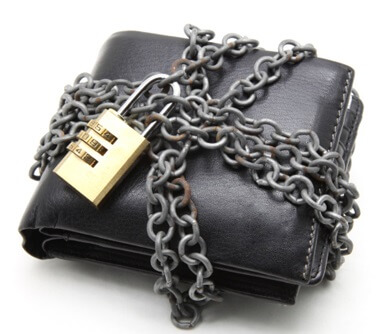How to Control Spending and Live a Comfortable Lifestyle

For someone in their late 20s working full-time and paying off school loans, a car payment, a few credit cards and rent or a mortgage, life can sometimes feel a bit overwhelming. The good news is that there are ways to tighten your belt and reduce your monthly expenses and free up enough money to plan a yearly vacation or buy something that you really want.
Not settling on your current job
You've worked now for the same company for a few years and while you started out with an attractive salary, you're now just in line with everyone else. It's time to gain the same assertiveness you had when you pursued the job and speak up about your concerns. Many times talking about your needs and expectations with your boss can open up a dialog that works in your favor. After all, if you are a valuable asset to the company, chances are pretty good that they want to make you happy so that you continue working for them. If on the other hand, the talk doesn't turn out as you expected, then it might benefit you to start the search for a new job. Either way, this will help you to bring in additional income in the near future.
Reducing the costs of standard monthly bills
If you have a car payment and credit cards, there are ways to reduce the cost per month. If your credit score is good (over 700) you can shop around and try to refinance your current car loan with a credit union or another bank. The same goes for your credit cards. Check the interest rates. If they seem a little high and your history is good, contact the credit card company and ask them to reduce the interest rate. If they turn you down, apply for another card with a different bank. Car insurance is another place where you can reduce the monthly payment. Check around with other companies like acceptanceinsurance.com that use a different rating system for their drivers. Also, many insurance companies offer additional savings if you combine auto and home together and if you pay your premium in full each year. If this is something doable for you, it can save you hundreds a year.
Paying down debt
When you first start out on your own after college you take on many expenses. Chances are you have a car payment, a few credit cards and your student loans. But, now in addition to that, you have monthly rent, electric, cable, a cell phone, food, and travel expenses. The debt can really pile up quickly. It's a good idea to set up a household budget and then stick to it. On a spreadsheet, make a list of all your expenses and then deduct that from your net income. If you find that you have very little left over and barely enough to survive, it's time to get serious and refrain from making purchases on cards until you get to a level of comfort. The best way to decide which credit card to pay down first is to check and see what the outstanding balances are, the monthly minimum payments, and the interest rates for each one. Paying off the one that's costing you the most overall will help to reduce your monthly expenses faster. Once you get one down, move onto the next one.
Leaving home and starting a life of your own is very exciting. For the first time in your life, every decision you make has lasting consequences. Taking steps to reduce your debt and increasing your income will help you to maintain your good credit score, pay down your debt and free up monies for the things you deserve.
839GYLCCC1992



Leave a Reply